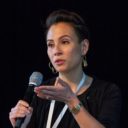‘Philanthropy is not a sector that likes to change’, Darren Walker asserted at a recent lecture at the London School of Economics. Although the Ford Foundation (where Walker is President) has been changing in recent years, his assertions still ring true: many philanthropic organisations have bold rhetoric on inequality, but (as he put it) ‘stop short of interrogating their own practice’.
Attacking what Walker calls the ‘scourge’ of inequality should be a priority for philanthropy. It is manifest in so many of our social ills: discrimination, poverty, marginalisation.
Without focusing on inequality, we’re tinkering at the edges of change. Yet how can we tackle inequality without addressing the barriers to equity in our own sector?
Walker asserted that ‘generosity isn’t enough; justice requires discomfort’. Inequality can’t be addressed without acknowledging that some of us have substantially more than others, and that this is not solely due to hard work or talent. We may not notice it, but we benefit from substantial tailwinds.
Recognising what we take for granted in our own lives is a step towards tackling inequality in the wider world. Instead of ‘stopping short’ of interrogating ourselves, there are many things philanthropy can do to challenge inequality.
General support
At Ford, Walker has ushered in a welcome move from reductive admin rates (‘overhead fiction’) to funding for general support.
The intention is to create change by investing in individuals, institutions and ideas. Partly this is an effort to strengthen democracy: vital work such as quality journalism and strategic litigation can’t be funded by project grants. But this is also a move toward equity: to truly be willing to empower people, you have to be willing to take your directive from them.
New forms of leadership
When asked about leadership, Walker championed skills that resonate with contemporary management philosophy: empathy, courage, emotional intelligence.
He noted empathy as especially important in this climate: empathic leaders imagine what it’s like to be a financially insecure person in a rural area, instead of casting judgement on those who vote against their own interests. I would go one step further: as well as empathising with the marginalised, actually involve them in decision-making about issues that affect them.
Valuing alternative expertise
The Ford Foundation are seeking ways to democratise their recruitment processes, having previously relied on academic achievement to prove worth. What if a person’s knowledge and leadership skills stem from authentic engagement in their community, rather than academic qualifications?
Elite systems of recruitment are just one way philanthropy privileges formal credentials over other forms of knowledge, thus exacerbating inequality. We pay for reports from professionals but don’t always listen to the perspectives of those with lived experience.
Participatory grantmaking is one way of addressing this, but the first step is acknowledging alternative forms of expertise.
Beyond metrics
Although he didn’t dismiss so-called ‘effective altruism’, Walker asked us to appreciate its limits: ‘there’s no RCT we can do on racial justice’.
In the Atlantic Fellowship for Social and Economic Equity, we spend a great deal of time considering measurements of inequality.
We track, monitor and calculate, but in the end inequality is not so easily quantified. Often it’s the stories people tell about their lives that offer real understanding. Can we use these as evidence for reporting?
Using privilege
It’s clear that Walker feels strongly that those with privilege and voice should use this to benefit others. I would highlight that philanthropy, especially endowed foundations like Ford, are especially well positioned to do so.
Philanthropy’s lack of accountability (to shareholders, electorates or funders) should be used take risks, to speak out, and to challenge injustice.
In his concluding remarks, Walker noted he is ‘radically optimistic about the future’. When I see the work of new philanthropic endeavours such as FundAction or the Radical Hope Fund, I can believe it.
I’ll end on a call to arms: let’s prove Walker wrong about our unwillingness to move beyond rhetoric towards self-interrogation. We can and must innovate to address inequality.
Rose Longhurst is an Atlantic Fellow for Social and Economic Equity.





Comments (0)